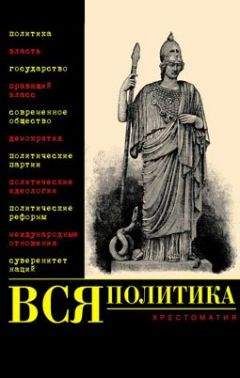166
PONEROLOGY
dency to accept the better version of the ideology will tend to
justify such ideological duality.
The ideology of the proletariat,81 which aimed at revolu-
tionary restructuring of the world, was already contaminated by
a schizoid deficit in the understanding of, and trust for, human
nature; small wonder, then, that it easily succumbed to a proc-
ess of typical degeneration in order to nourish and disguise a
macrosocial phenomenon whose basic essence is completely
different.82
For future reference, let us remember: ideologies do not
need spellbinders. Spellbinders need ideologies in order to
subject them to their own deviant goals.
On the other hand, the fact that some ideology degenerated
along with its corollary social movement, later succumbing to
81 From the Communist Manifesto: “By proletariat [is meant] the class of
modern wage laborers, who, having no means of production of their own, are
reduced to selling their labor-power in order to live.” [Editor’s note.]
82 Fascism seems to be the diametric opposite of Communism and Marxism,
both in a philosophic and political sense, and also opposed democratic capi-
talist economics along with socialism and liberal democracy. It viewed the
state as an organic entity in a positive light rather than as an institution de-
signed to protect collective and individual rights, or as one that should be
held in check. Fascism is also typified by totalitarian attempts to impose state
control over all aspects of life: political, social, cultural, and economic which
accurately describes what was passed off under the name of Communism.
The fascist state regulates and controls (as opposed to nationalizing) the
means of production. Fascism exalts the nation, state, or race as superior to
the individuals, institutions, or groups composing it. Fascism uses explicit
populist rhetoric; calls for a heroic mass effort to restore past greatness; and
demands loyalty to a single leader, often to the point of a cult of personality.
Again, we see that Fascism was passed off as Communism. So, what actually
seems to have happened is that the original ideals of the proletariat were
cleverly subsumed to State corporatism. Most people in the west are not
aware of this because of the Western propaganda against Communism. The
word “Fascist” has become a slur throughout the world since the stunning
failure of the Axis powers in World War II. In contemporary political dis-
course, adherents of some political ideologies tend to associate fascism with
their enemies, or define it as the opposite of their own views. There are no
major self-described fascist parties or organizations anywhere in the world.
However, at the present time, in the U.S., the system is far more fascist than
democratic, which probably explains the existence of the years of anti-
Communist propaganda. That would demonstrate an early process of poneri-
zation of Western democracy which, at present, has almost completed the
transformation to full-blown fascism. [Editor’s note.]
POLITICAL PONEROLOGY
167
this schizophrenia and serving goals which the originators of
the ideology would have abhorred, does not prove that it was
worthless, false, and fallacious from the start. Quite the con-
trary: it rather appears that under certain historical conditions,
the ideology of any social movement, even if it is sacred truth,
can yield to the ponerization process.
A given ideology may have contained weak spots, created
by the errors of human thought and emotion within; or it may,
during the course of its history, become infiltrated by more
primitive foreign material which can contain ponerogenic fac-
tors. Such material destroys an ideology’s internal homogeny.
The source of such infection by foreign ideological material
may be the ruling social system with its laws and customs
based on a more primitive tradition, or an imperialistic system
of rule. It may be, of course, simply another philosophical
movement often contaminated by the eccentricities of its foun-
der, who considers the facts to blame for not conforming to his
dialectical construct.
The Roman Empire, including its legal system and paucity
of psychological concepts, similarly contaminated the primary
homogeneous idea of Christianity. Christianity had to adapt to
coexistence with a social system wherein “dura lex sed lex”83,
rather than an understanding of human beings, decided a per-
son’s fate; this then led to the corruption of attempting to reach
the goals of the “Kingdom of God” by means of Roman impe-
rialistic methods.
The greater and truer the original ideology, the longer it
may be capable of nourishing and disguising from human criti-
cism that phenomenon which is the product of the specific
degenerative process. In a great and valuable ideology, the
danger for small minds is hidden; they can become the factors
of such preliminary degeneration, which opens the door to
invasion by pathological factors.
Thus, if we intend to understand the secondary ponerization
process and the kinds of human associations which succumb to
it, we must take great care to separate the original ideology
from its counterpart, or even caricature, created by the ponero-
genic process. Abstracting from any ideology, we must, by
83 The law [is] harsh, but [it is] the law.
168
PONEROLOGY
analogy, understand the essence of the process itself, which has
its own etiological causes which are potentially present in
every society, as well as characteristic developmental patho-
dynamics.
The Ponerization Process
Observation of the ponerization processes of various human
unions throughout history easily leads to the conclusion that the
initial step is a moral warping of the group’s ideational con-
tents. In analyzing the contamination of a group’s ideology, we
note first of all an infiltration of foreign, simplistic, and doctri-
naire contents, thereby depriving it of any healthy support for,
and trust in, the necessity of understanding of human nature.
This opens the way for invasion by pathological factors and the
ponerogenic role of their carriers.
The example of the Roman legal system vis a vis early
Christianity mentioned above, is a case in point. The Roman
imperial and legal civilization was overly attached to matter
and law, and created a legal system that was too rigid to ac-
commodate any real aspects of psychological and spiritual life.
This “earthy” foreign element infiltrated Christianity resulting
in the Catholic church adopting Imperial strategies to enforce
its system on others by violence.
This fact could justify the conviction of moralists that main-
taining a union’s ethical discipline and ideational purity is suf-
ficient protection against derailing or hurtling into an insuffi-
ciently comprehended world of error. Such a conviction strikes
a ponerologist as a unilateral oversimplification of an eternal
reality which is more complex. After all, the loosening of ethi-
cal and intellectual controls is sometimes a consequence of the
direct or indirect influence of the omnipresent factors of the
existence of deviants in any social group, along with some
other non-pathological human weaknesses.
Sometime during life, every human organism undergoes pe-
riods during which physiological and psychological resistance
declines, facilitating development of bacteriological infection
within. Similarly, a human association or social movement
undergoes periods of crisis which weaken its ideational and
moral cohesion. This may be caused by pressure on the part of
POLITICAL PONEROLOGY
169
other groups, a general spiritual crisis in the environment, or
intensification of its hysterical condition. Just as more stringent
sanitary measures are an obvious medical indication for a
weakened organism, the development of conscious control over
the activity of pathological factors is a ponerological indica-
tion. This is a crucial factor for prevention of tragedy during a
society’s periods of moral crisis.
For centuries, individuals exhibiting various psychological
anomalies have had the tendency to participate in the activities
of human unions. This is made possible on the one hand by
such group’s weaknesses, i.e. failure in adequate psychological
knowledge; on the other hand, it deepens the moral failings and
stifles the possibilities of utilizing healthy common sense and
understanding matters objectively. In spite of the resulting
tragedies and unhappiness, humanity has shown a certain pro-
gress, especially in the cognitive area; therefore, a ponerologist
may be cautiously optimistic. After all, by detecting and de-
scribing these aspects of the ponerization process of human
groups, which could not be understood until recently, we shall
be able to counteract such processes earlier and more effec-
tively. Again, depth and breadth of knowledge of human psy-
chological variations is crucial.
Any human group affected by the process described herein
is characterized by its increasing regression from natural com-
mon sense and the ability to perceive psychological reality.
Someone considering this in terms of traditional categories
might consider it an instance of “turning into half-wits” or the
development of intellectual deficiencies and moral failings. A
ponerological analysis of this process, however, indicates that
pressure is being applied to the more normal part of the asso-
ciation by pathological factors present in certain individuals
who have been allowed to participate in the group because the
lack of good psychological knowledge has not madated their
exclusion.
Thus, whenever we observe some group member being
treated with no critical distance, although he betrays one of the
psychological anomalies familiar to us, and his opinions being
treated as at least equal to those of normal people, although
they are based on a characteristically different view of human
170
PONEROLOGY
matters, we must derive the conclusion that this human group is
affected by a ponerogenic process and if measures are not
taken the process shall continue to its logical conclusion. We
shall treat this in accordance with the above described first
criterion of ponerology, which retains its validity regardless of
the qualitative and quantitative features of such a union: the
atrophy of natural critical faculties with respect to pathologi-
cal individuals becomes an opening to their activities, and, at
the same time, a criterion for recognizing the association in
concern as ponerogenic.
Such a state of affairs simultaneously consists as a liminal
(watershed) situation, whereupon further damage to people’s
healthy common sense and critical moral faculties becomes
ever easier. Once a group has inhaled a sufficient dose of
pathological material to give birth to the conviction that these
not-quite-normal people are unique geniuses, it starts subject-
ing its more normal members to pressure characterized by cor-
responding paralogical and paramoral elements.
For many people, such pressure of collective opinion takes
on attributes of a moral criterion; for others, it represents a kind
of psychological terror ever more difficult to endure. The phe-
nomenon of counter-selection thus occurs in this phase of pon-
erization: individuals with a more normal sense of psychologi-
cal reality leave after entering into conflict with the newly
modified group; simultaneously, individuals with various psy-
chological anomalies join the group and easily find a way of
life there. The former feel “pushed into counter-revolutionary
positions”, and the latter can afford to remove their masks of
sanity ever more often.
People who have been thus thrown out of a ponerogenic as-
sociation because they were too normal suffer bitterly; they are
unable to understand their specific state. Their ideal, the reason
they joined the group, which constituted a part of the meaning
of life for them, has now been degraded, although they cannot
find a rational basis for this fact. They feel wronged; they
“fight against demons” they are not in a position to identify.
The fact is their personalities have already been modified to a
certain extent due to saturation by abnormal psychological
material, especially psychopathic material. They easily fall into
POLITICAL PONEROLOGY
171
the opposite extreme in such cases, because unhealthy emo-
tions rule their decisions. What they need is good psychologi-
cal information in order to find the path of reason and measure.
Based on a ponerologic understanding of their condition, psy-
chotherapy could provide rapid positive results. However, if
the union they left is succumbing to deep ponerization, a threat
looms over them: they may become the objects of revenge,
since they have “betrayed” a magnificent ideology.84
This is the stormy period of a group’s ponerization, fol-
lowed by a certain stabilization in terms of contents, structure,
and customs. Rigorous selective measures of a clearly psycho-
logical kind are applied to new members. So as to exclude the
possibility of becoming sidetracked by defectors, people are
observed and tested to eliminate those characterized by exces-
sive mental independence or psychological normality. The new
internal function created is something like a “psychologist”,




